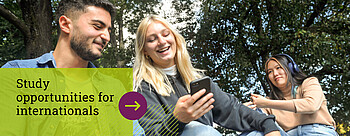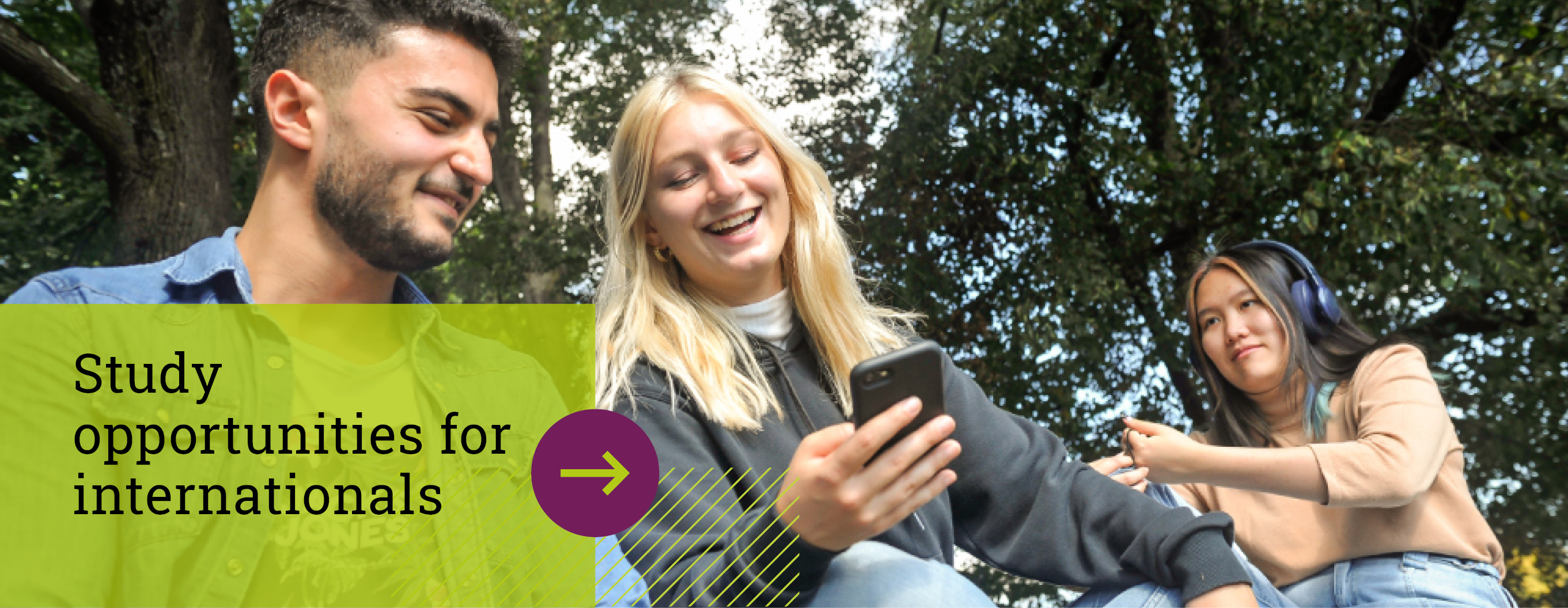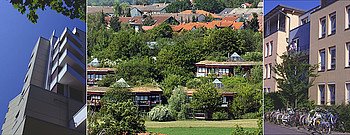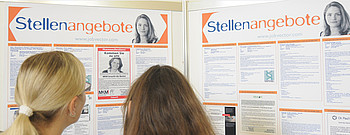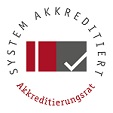Biobased Products and Bioenergy (Master’s)
Study in Germany’s Leading Region for Technology
Biobased Products and Bioenergy (Master’s)
Study in Germany’s Leading Region for Technology
The University of Hohenheim is one of the leading universities in the area of renewable resources. Here you can see how biomass can be transformed into new materials, for example bioplastics. Sustainability and profitability when using biomass are key elements of an economic structure oriented on the future, and you can help design it.
- Excellent competence in teaching and research in the area of bioenergy
- Cooperation with KIT (Karlsruhe Institute of Technology)
- Many different career possibilities in the area of renewable resources
- Reasons to Choose Hohenheim
The degree program M.Sc. Biobased Products and Bioenergy was redesigned and renamed as the M.Sc. Sustainable Biobased Technology.
| Degree Master of Science (M.Sc.) |
4 semesters 120 credits |
Language German |
University places unlimited |
Location Stuttgart |
|||||
| 1st Semester | 2nd Semester | 3rd Semester | 4th Semester |
|---|---|---|---|
| Nachhaltigkeit und Produktionsökologie von rohstoffliefernden Pflanzen (6 Credits) | Project work (12 Credits) | Elective Module (6 Credits) | Elective Module (6 Credits) |
| Erneuerbare Energieträger (6 Credits) | Elective Module (6 Credits) | Elective Module (6 Credits) | |
| Simulation einer Bioraffinerie (6 Credits) | Elective Module (6 Credits) | Elective Module (6 Credits) | |
| Grundoperationen einer Bioraffinerie (6 Credits) | Elective Module (6 Credits) | Elective Module (6 Credits) |
More information about the individual modules can be found in the module descriptions.
In the first year of studies,
compulsory modules cover the topics of sustainability, production ecology, economic evaluation, and the technical procedures for transforming energy crops and renewable resources. Students also complete a project. The topic of the project, which comes from professional practice, is worked on independently using scientific methods. Learning about the program AspenPlus, which is commonly used in the branch, is a further building block that qualifies you for your profession. The specialization “Production Processes for Material Use of Renewable Resources” enables students to complete their second semester at the Karlsruhe Institute of Technology (KIT) to expand their knowledge of production processes.
In the second year of studies,
the students work on their individual profiles with elective modules. To do so, they can choose from more than 200 modules in the Faculty of Agricultural Sciences and, upon request, the entire range of Master’s modules from the University of Hohenheim and cooperating universities. Because of the freedom to structure your studies, in the second year it is also possible to spend a semester abroad. Credits earned during a semester abroad can be easily recognized as elective modules.
The Master's thesis is also written during the second year. The students have six months to complete the thesis independently using scientific methods. They can choose their own research question in internal or external areas or the thesis can be carried out as part of existing projects (national and international).
The Master's program provides technical and crop science knowledge and the ability to work in an interdisciplinary manner. For example, the students learn to examine the biobased value chain. You learn to plan, implement, and assess projects on the production and use of biobased products and bioenergy.
Cooperation with the Karlsruhe Institute of Technology (KIT) also offers the opportunity to set a focus on technical implementation and gain engineering knowledge. Studies also enable students to drive forward the production and conversion of renewable resources with research and development, and to enter into management positions in the area of biobased products.
For those interested in science, it is also possible to continue with a doctorate.
After their studies, graduates have good chances on the national and international job market. The drive in industry and research toward sustainable business requires a new kind of interdisciplinary professionals. These are trained in the degree program and can then start their careers as:
Project managers for sustainability projects at:
- Agencies and associations, e.g. in the area of renewable energy
- Energy producers and suppliers as well as energy trading
- Industrial companies with various specializations, e.g. in the field of automotive, packaging, pharmaceuticals, food, waste disposal, etc.
Consultants for more sustainability at:
- Engineering offices
- Business consulting firms
Researchers for innovation at:
- Universities
- Non-university research institutions
- Research departments in the industrial sector
And expert consultants in sales, quality control, marketing, and public relations in various companies.
The Master's program qualifies students - assuming they are above average - for starting a doctorate
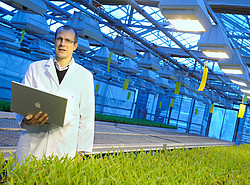
Good reasons to study at the Faculty of Agricultural Sciences in Hohenheim
First Place not Once but Three Times: The current Global Universities Ranking from U.S. News & World Report, the renowned NTU ranking, QS World University Ranking, and dathe Center of World University Ranking put University of Hohenheim’s agricultural research in 1st place in Germany.
In the agricultural university ranking from top agrar, the agricultural students at the University of Hohenheim give the grades 1.5 to 2.0. According to the ranking 2016, 88% of the students surveyed would recommend the University of Hohenheim for agricultural studies.
The University of Hohenheim puts great importance on quality teaching, which is demonstrated by several award-winning reform projects.
These projects include for example mobile teaching (German e-learning innovation and young scientists award (d-elina) in the category “Campus” at the BITKOM) or the ethics module, developed by the student group FRESH and awarded by the UN.

Extensive selection options make specialization or diversification possible. Students can choose from more than 200 modules offered by of the Faculties of Agricultural Science. Upon request, they can even select from all of the Master’s modules offered by the University of Hohenheim and the other cooperating universities.

The vision of the Faculty of Agricultural Sciences is a global agricultural system which is productive, environmentally-friendly and socially-minded, and which is in harmony with society’s demand for a multi-purpose orientation.
Agricultural research at the University of Hohenheim is focused on four areas:
- Food for all: Security of global food supply
- Hazard prevention: Climate change and scarcity of resources
- Beyond fossil fuels: Bioenergy and bio-based value-creation networks
- Diversity instead of monoculture: Genome Diversity in Agriculture
There are no easy answers to these kinds of questions. That is why agricultural researchers at the University of Hohenheim work across disciplinary boundaries, collaborating with colleagues in the natural sciences, business administration and economics, and the social sciences, for instance in bioeconomics, a field of research and teaching that will become even more important in the future. That collaboration also has an impact on teaching.
Number 1 in internationalization: In the current EU ranking U-Multirank, the University of Hohenheim has a top spot in internationalization.
The basis for this placing is the decades-long, global commitment of the Agricultural Sciences. Especially our tropics research with 10 professorships has made the University known around the world.
International opportunities for students:
- 80 partner institutions worldwide (40 of which are in the Erasmus+ program)
- Member of the Euroleague for Life Sciences - the network for Europe’s best
- scholarship programs for travel, research, and exchange
- Worldwide alumni network
- Studies according to international standards for excellence and international competitiveness of graduates
Professors of the Faculty of Agricultural Sciences are in high demand.
The top experts include:
 | Chair of the scientific advisory council Prof. Dr. Martina Brockmeier The German Council of Science and Humanities is considered the highest-ranking advisory committee on topics of science in Germany. Its scientific members are appointed by the Federal President. |
 | In the Bioeconomy Council Prof. Dr. Regina Birner The Bioeconomy Council is an independent advisory committee for the German federal government. The goal: to establish a cross-sectoral and bio-based economy in Germany that uses as few fossil raw materials as possible. |
Further members in important commissions and expert lists
- Prof. Dr. Iris Lewandowski and Prof. Dr. Joachim Müller are members of the BMBF scientific advisory council "Agricultural Systems of the Future”
- Prof. Dr. Enno Bahrs is member of the BMEL scientific advisory council for biodiversity and genetic resources
- Expert lists on various agricultural topics

Scholarship and awards for studies, final theses, travel, and attending conferences: Thanks to many supporters, the University of Hohenheim has an unusually extensive scholarship culture.
Around 100,000 Euros is the total amount of all scholarships and awards that are presented each year at the Dies academicus.
More than 700 hectares of test area: Among German universities, the University of Hohenheim owns the largest amount of property. For students, this means a lot of room for their own experiments, research, and a great deal of hands-on experience.
Also directly on campus: State institutes for transferring science into practice, the Hohenheim Gardens, and the German Agricultural Museum.

The future lack of experts and managers in the area of agriculture / nutrition / horticulture means students of agricultural will have good career prospects. This was shown by a 2015 study by the Bundesverband Agrar Ernährung Umwelt (VDL).

The University of Hohenheim is a university with a long tradition. You will experience a truly unique university atmosphere enriched by the Baroque palace, the historic gardens and parks, and modern architecture: In 2009, the University of Hohenheim was declared the most beautiful campus university in the state.
In 2017, Hohenheim's President Stephan Dabbert was chosen by the German Association of University Professors and Lecturers (DHV) as the most popular president in Baden-Württemberg for the third year in a row. He was ranked second in all of Germany.
This jewel is located south of the state capital Stuttgart. Because it is close to Stuttgart, you have all the opportunities available in a big city. The University of Hohenheim is only a few minutes away from the airport, the Stuttgart Trade Fair Centre, and the autobahn and is easily reached with public transportation.
 | Unique party atmosphere: The historical Thomas-Müntzer-Scheuer, an old barn with a new purpose, is the party center of Hohenheim. |
 | The University ball in the pompous palace rooms is the social event of the year. |
Because the second year is open for you to choose your focus, credits earned during a semester abroad can be easily recognized as elective modules. This will not prolong your studies.
The Faculty of Agricultural Sciences cooperates in research and teaching with 80 partner institutions worldwide including 40 universities in the ERASMUS+ program.
The University of Hohenheim’s Office of International Affairs offers information and advising on stays abroad and how to finance them through scholarships.
| Application deadlines | |
|---|---|
| 1st subject-related semester | for the winter semester: preferably by 15 July so that all formal requirements can be met in time. Applications can be submitted until 15 September. for the summer semester: preferably by 15 January so that all formal requirements can be met in time. Applications can be submitted until 15 March. |
Higher subject-related semesters | for the winter semester: preferably by 15 July so that all formal requirements can be met in time. Applications can be submitted until 15 September. for the summer semester: preferably by 15 January so that all formal requirements can be met in time. Applications can be submitted until 15 March. |
| Requirements | |
|---|---|
| Formal requirements |
Because the number of places is not limited, everyone who fulfills the formal requirements and successfully completes the application process is admitted to the program! You can find more information in the admission regulations and on our Checklist for Application Documents. |
| Content requirements | Students should have knowledge of crop sciences, engineering, and economics |
| Language skills | German language proficiency required |
| Pre-study internship | no |
| Selection procedure | |
|---|---|
| Selection criteria | No An above-average grade in the Bachelor’s program (see admission regulations) is a requirement for admission, however |
| Selection interview | no |

